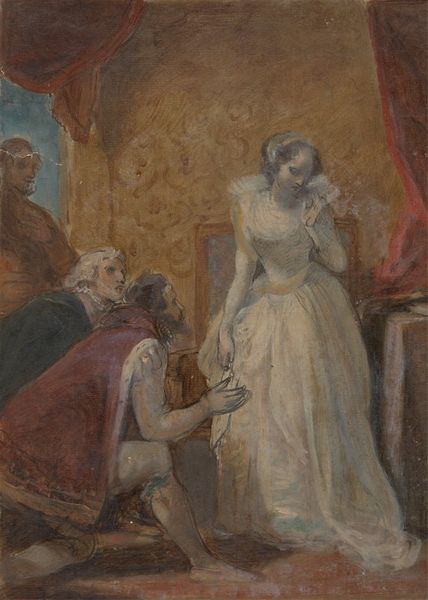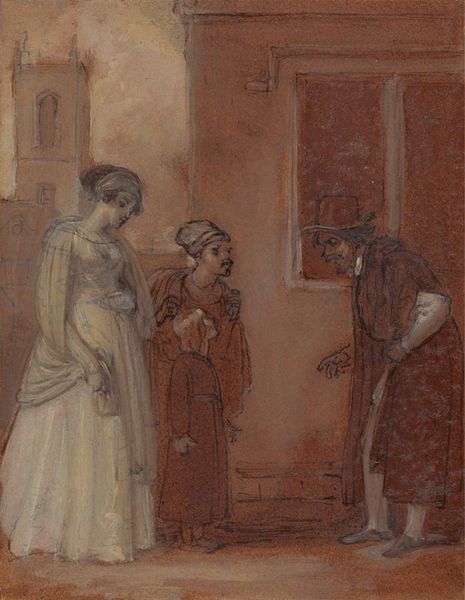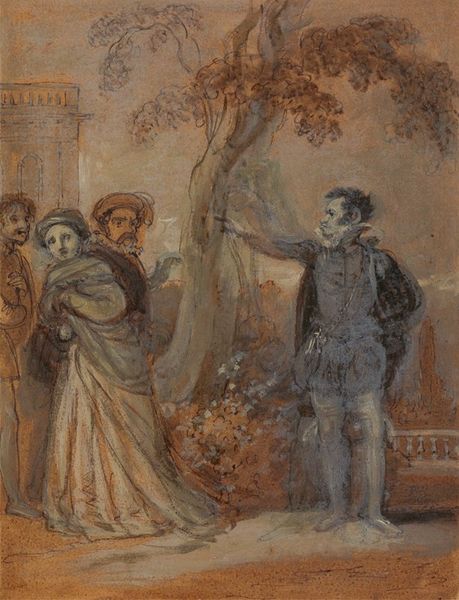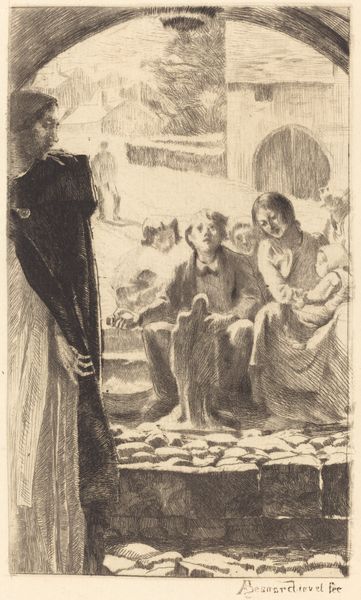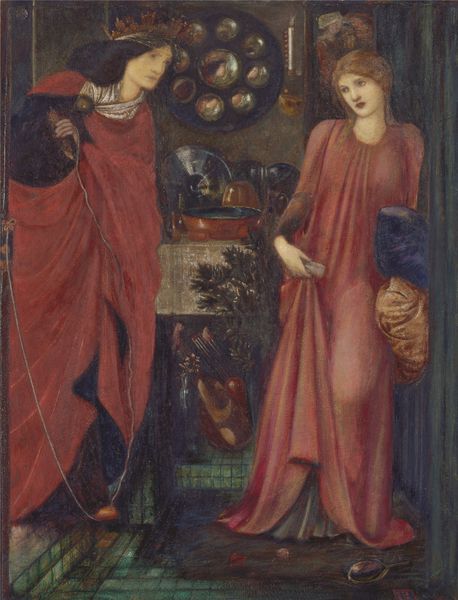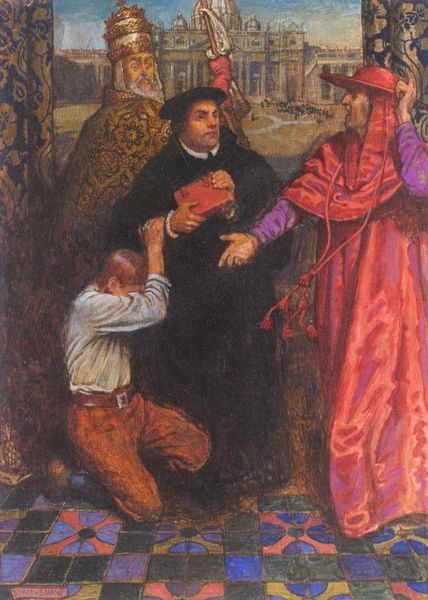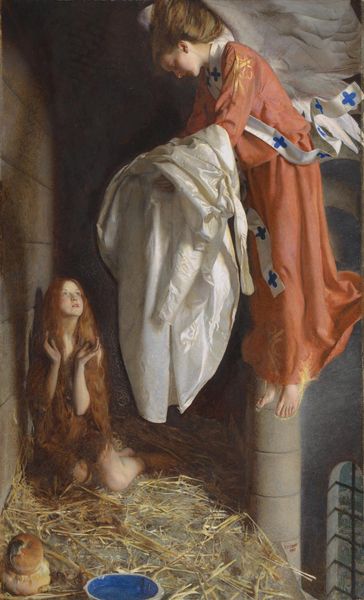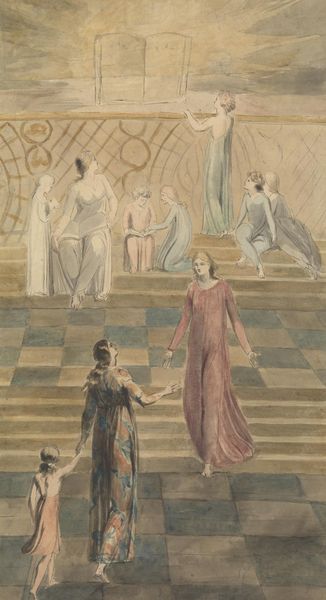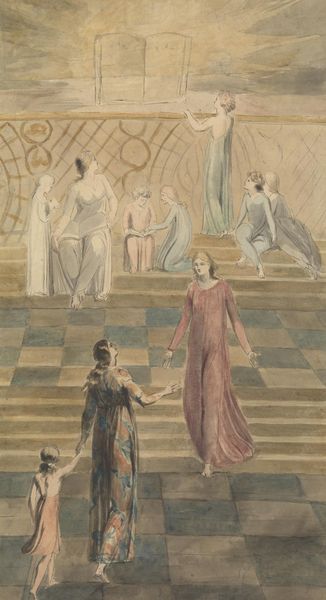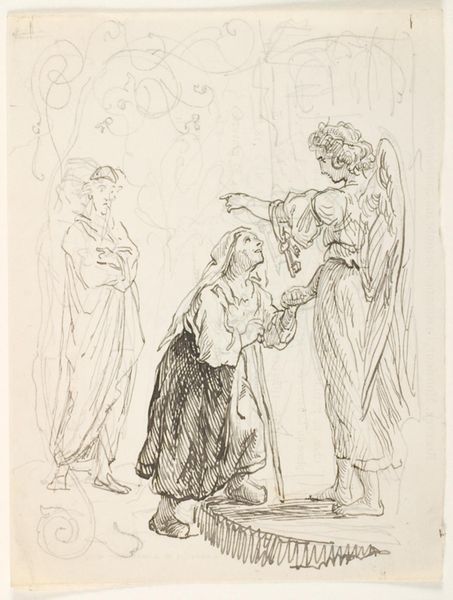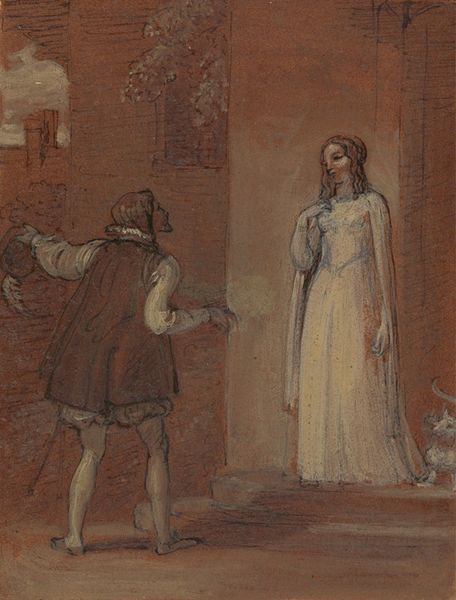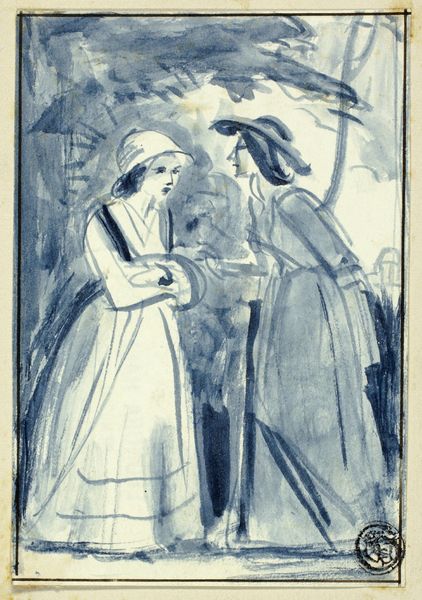
Till holy church incorporate two as one – Act II, Scene VI, Romeo and Juliet
0:00
0:00
painting, watercolor
#
portrait
#
figurative
#
painting
#
figuration
#
oil painting
#
watercolor
#
romanticism
#
watercolour illustration
#
genre-painting
#
academic-art
#
portrait art
#
watercolor
Copyright: Public Domain: Artvee
Edwin Austin Abbey created this watercolor painting of Romeo and Juliet, Act II, Scene VI, using paper and pigments. The artist applied diluted washes of color, allowing the paper's texture to show through, adding luminosity to the scene. The fluid nature of watercolor allowed Abbey to work quickly, capturing the fleeting emotions of the play's characters. Note the transparent layers of paint which create depth and volume; see how the white of the paper has been incorporated to enhance the brilliance of the hues. Abbey's technique is evident in the way he built up color gradually, creating subtle tonal variations and soft transitions. This approach gives the painting a sense of immediacy. Abbey’s decision to use this medium emphasizes the artwork's value as a preliminary sketch, not a finished painting. He deliberately left the composition open to the viewer, so the viewer can appreciate the importance of artistic choices in understanding an artwork.
Comments
No comments
Be the first to comment and join the conversation on the ultimate creative platform.
